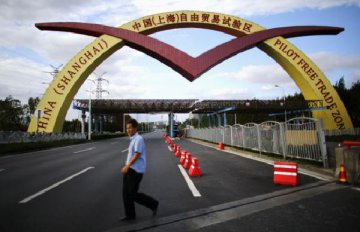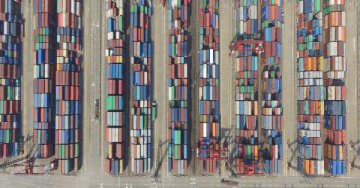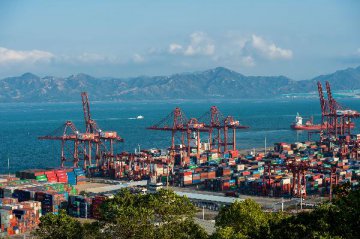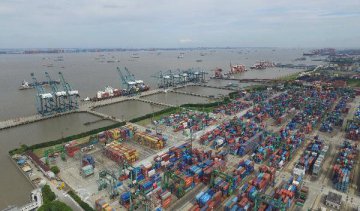
China is speeding up in advancing its strategy on free trade zones (FTZs) and is expected to harvest in 2018. It is learnt from the national commercial work conference held on December 25 and 26 that China signed four free trade agreements and initiated four feasibility studies in 2017. China has signed 16 free trade agreements so far with 24 countries and regions involved. It is expected to further expand next year. China will advance negotiations on 10 free trade agreements and will initiate the feasibility study on 10 free trade agreements in 2018. Talks on the Regional Comprehensive Economic Partnership (RECP) are also expected to see substantial progresses.
China signed four new free trade agreements in 2017, indicated Zhang Shaogang, director-general of the department of international trade and economic affairs at the Ministry of Commerce. In 2017, China signed free trade agreements with Georgia and Maldives and signed a protocol on FTZ upgrading with Chile. It also signed the Second Revision of the Asia-Pacific Trade Agreement with preferential trade arrangements. In addition, it also initiated four feasibility studies. In 2017, China initiated the joint feasibility study on free trade negotiations with Panama, Mongolia and Palestine and upgraded the joint study on free trade negotiations with Switzerland.
In addition, the Ministry of Commerce has generally completed the preparation of the negative list on cross-border services. It will gradually advance the negotiations on free trade and investment based on the negative list. “We have strengthened the implementation and marketing of FTZs and the establishment of websites for FTZs to help enterprises improve the awareness of enterprises on preferential policies and make better use of such policies.” Zhang said.
Looking into 2018, Zhang pointed out that “China will conduct talks on 10 FTZs and advance 10 joint feasibility studies. We wish to make more achievements in 2018 through our efforts.”
It is learnt that the Ministry of Commerce will actively promote the Regional Comprehensive Economic Partnership Agreement and advance the negotiation on or upgrading of free trade agreements with Israel, Sri Lanka, the Gulf Co-operation Council, Pakistan and Singapore. Meanwhile, it will advance the joint feasibility studies or the upgrading of studies with Panama, Palestine, Mongolia, Switzerland, Peru and other countries. It will promote a new round of talks on the Asia-Pacific Trade Agreement to establish a FTZ pattern with high standards covering the Belt and Road initiatives and the whole world.
Substantial progresses are expected to be made in the talks on the RCEP. 16 members of the RCEP covered half of the global population and accounted for 31.6 percent of global output and 28.5 percent of global trade in 2016 and attracted one fifth of global foreign direct investment. Since the negotiations for the mega-trade pact were initiated in 2012, a total of 20 rounds of talks, at both the ministerial and state leader levels, have been held. The first summit of leaders was held in November.
Zhang disclosed that the negotiations have achieved steady progress in the market entry permits of goods and service trade. Due to the different development levels of members, it takes time to solve some problems. Generally speaking, “we are confident to make substantial progresses and wish to harvest soon”.
The 19th CPC National Congress and the Central Economic Work Conference raised requirements on the establishment of FTZs, indicated Bai Ming, a researcher with the Chinese Academy of International Trade and Economic Cooperation. China has made progresses in promoting a FTZ pattern with high standards covering the Belt and Road initiatives and the whole world in recent years. The implementation of the FTZs strategy has become a key part in China’s opening to the outside. Bai indicated that with the increase in the number of FTZs, the opening of free trade agreements has been improving. It will facilitate a new pattern in opening and bring more benefits to Chinese enterprises and people.
Translated by Star Zhang
























Latest comments